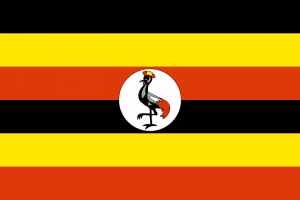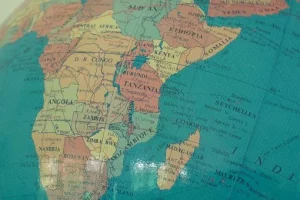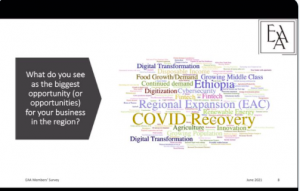Insights
The Eastern Africa Association is a source of insightful and helpful publications, guides, and advice for all visitors to our website. Contributors include EAA analysts, our Members, and a wide range of experts and official commentators. As a key service for Members only, we produce a regular Newsletter which contains our analysis of developments in the region.
You can search for material using the filters below, or access the latest publications in the library further down the page.

Ethiopia Update March 2025
Ethiopia continues to manage the stabilisation of the conflict regions in the country although this will not be an overnight fix. The economy is performing well despite the reduction in aid by the US and the fact that Ethiopia has not be reinstated to the AGOA scheme.
Read More
Ethiopia Update January 2025
Ethiopia is ramping up its plans to reform the economy and make it easier for foreign investors. The establishment of the Ethiopian Securities Exchange is a step in the right direction.
Read More
Ethiopia Update December 2024
Internal and external tensions continue to plague Ethiopia. The economy is benefitting from the Foreign Exchange reforms.
Read More
Ethiopia Update October 2024
Ethiopia’s current political and economic landscape is fraught with challenges. However, proactive engagement with international partners and strategic domestic reforms, presents opportunities for recovery and stability. As the nation strives to stabilise its economy and manage public discontent, the collaboration with the regional and international actors such as the IMF provides an important lifeline.
Read More
EASTERN AFRICA ASSOCIATION PRESENTATION – LIMA LABS
How AI is unlocking value for farmers in Kenya-September 2024
Read More
Ethiopia Update September 2024
Positive economic reforms, particularly the flotation of the Birr, continue to increase Ethiopia’s attractiveness as an investment destination, all while, concerns remain about the speed of implementation of these changes. The security situation in various parts of the country remain tense and new splits in the Tigray region threaten a return of instability there.
Read MoreWEBINAR- Redefining Africa -UK Relations under the Labour Government. Thursday 25th July 10 AM BST
The recent victory by the UK’s Labour Party provides a timely moment to reassess the party’s Foreign policy, particularly its relations with Africa. Conservative-led governments all but ignored the growing importance of Africans on the global stage over the past 14 years, and they consistently underestimated the contribution of African migrants to the UK’s economy.
Learn MoreEthiopia’s IMF backed reforms prompts currency devaluation by 30%
Ethiopia’s economic transformation Ethiopia is undergoing economic transformation following Prime Minister Abiy Ahmed’s announcement of a comprehensive macroeconomic overhaul on July 28th. This bold and eagerly awaited decision shifts Ethiopia to an interest rate-based monetary policy and a market-based foreign exchange rate. According to officials, the new policies aim to curb inflation and enhance banking
Read More
Ethiopia Update July 2024
The conflicts in Ethiopia are continuing with no obvious end in sight. A number of economic reforms are ongoing and the economy is growing despite challenges.
Read More






